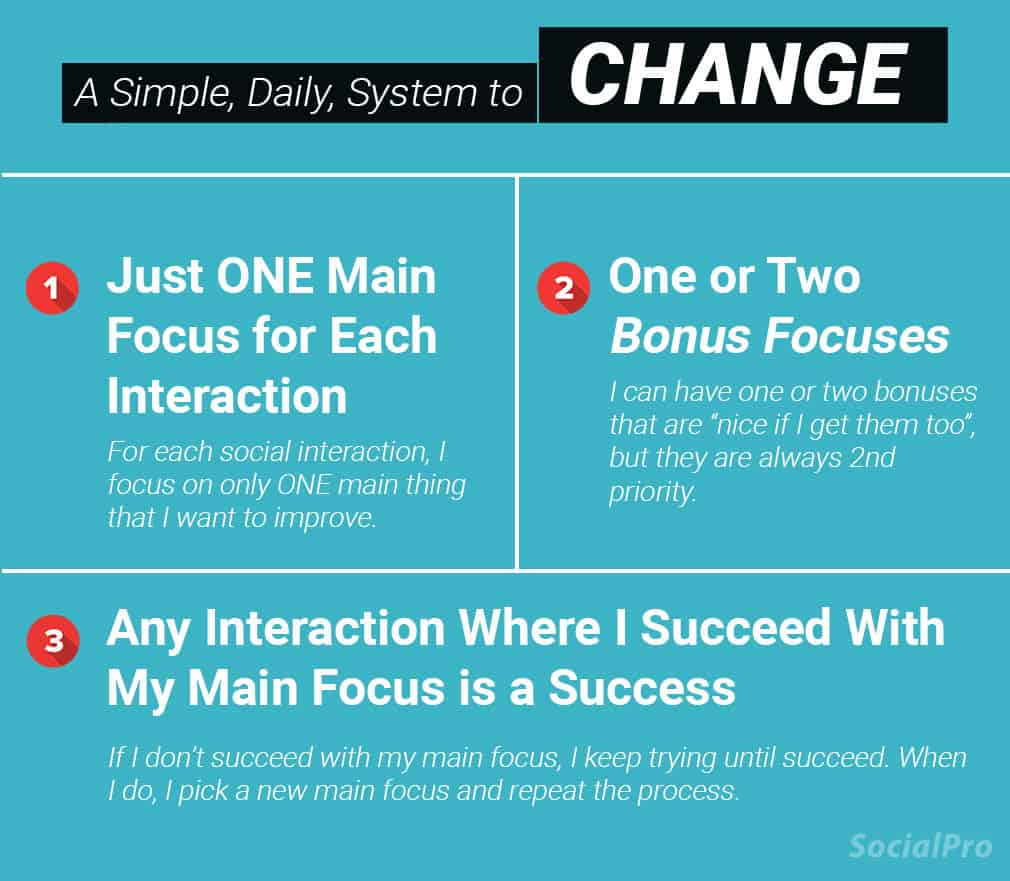I had just started my journey on “self-improvement” and had a very clear goal if who I wanted to be. My goal felt so real I could almost touch it.
I was super motivated. I read books on the topic.
So one day I had to attend one of those business mingles.
I felt pumped and excited. After all, a change was about to happen.
Well. As soon as I saw people my brain stopped. What were those books about now again? Couldn’t remember a word in them. I made some awkward conversation, then decided to go to the bathroom. I ended up standing in there, frozen for minutes (at least that’s what it felt like), contemplating what was wrong with me.
On my way home, all that motivation and visions about my new life were gone. I felt like I had failed. And on top of that, I was exhausted from information overload from all “gurus”, all with their own opposing “truths”.
I had to forget about all my grand goals and visions, and instead do something much more simple and hands on.
And to me at that point, every advice about confidence and social success was just a scam.
This wasn’t the first time I failed. I don’t know how many times I had felt super motivated, envisioned resolutions and goals, and then just watch that motivation fizzle out.
I realized that I did something wrong. I read about behavioral change and painfully realized that I had used the wrong strategy all the time.
It turned out that I had to do something very counterintuitive. I had to forget about all my grand goals and visions, and instead do something much more simple and hands on.
The idea is simple, but the research behind it is heavy.

Nothing should be too far out of my comfort zone, if it was I would just abandon the system sooner or later. I rather take steps that are too small than too big.
Today, behavioral scientists know that just setting up a goal isn’t enough for change to happen. (Research on Acceptance and commitment therapy; the third generation cognitive behavioral therapy using this framework | Read more 1 |Read more 2)
Before:
- Visualize your end goal.
- Keep that goal in mind every day to keep you motivated
(What happened was that people lose their motivation after a while)
New research:
- Visualize your end goal to know who you want to become.
- Ask yourself, what is the most simple system I can use daily to move in that direction?
- Follow that simple system every day
When you know your system, you don’t need to pay attention to that end goal anymore. A goal in itself will only help you understand what you want, it won’t help you get there. Only daily action will. The way to get daily action is to have a simple, daily system.
An example
My focus for one conversation could be to, say, ask more genuine questions. If I managed to ask a few questions, that conversation was a success. Asking genuine questions would be my main focus for every conversation until I could do it without effort.
As a bonus thing, I focused on, say, avoid fiddling with my fingers so I came off as more relaxed.
When I felt like I really knew what I was doing, I went on to the next thing. This is the simple system that I still use today. Sticking to this fool-proof system takes almost no energy compared to some fuzzy goal of “I’m gonna change my entire life and become a new person”.
Let me know in the comments below: what is something that you can have as a main goal and a bonus goal for your next conversation?